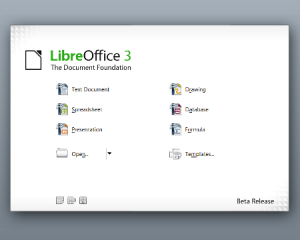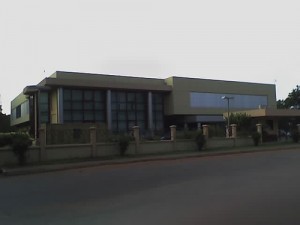It’s a new year, and as we look to 2011 as the year that open source kicks butt, we should take a few moments to reflect back on 2010. After all, that’s what you’re supposed to do in January, right? Look back, then look ahead, then resolve to be better.
So during my retrospective look, I realized that sitting among the rubble of the open source landscape in 2010, there were a few gems that stood out. These are in no particular order, and I think they all represent what the future of open source is truly about: community, giving back, driving imagination, challenging assumptions, and not accepting the status quo or the mandates of others. In short, it’s about freedom, innovation, and collaboration.
While some of these may not have been the biggest open source news stories, they are my personal favorites, and your results may vary.
1) Adafruit’s Open Kinect Bounty
In case you didn’t hear about this, Adafruit offered a $3000 prize to anyone who could write a fully documented, open source licensed, multiplatform driver for Microsoft’s Kinect device.

We all like a good challenge, and when Adafruit announced this contest, imagination and inspiration sprung up everywhere. Ultimately, that’s what we want, right? To work on a cool project that inspires us. There’s nothing better. And for those jokers who think that people are solely motivated by money, think again. What did the winner, Hector Martin, spend his $3000 bounty on?
Not hookers and blow or steaks and strippers, folks, but more hardware for his team, so they can continue doing what they love. That’s all open source devs really want. To be able to do what they love.
Kudos to Adafruit for inspiring developers, for not being satisfied with the mandate from corporations, and for giving back to the community and the EFF. And kudos to Hector Martin for being a kickass developer.
2) The Open Source Hydrogen Car
A car that runs on electricity. Powered by hydrogen fuel cells. And most importantly, whose design is being open sourced so that anyone can contribute. Can it be?!
Apparently, it can! A company called Riversimple is behind the venture that sticks its nose up at traditional auto manufacturers and the auto industry as a whole. They have created an open source group called the 40 Fires Foundation that oversees the design and development of the car. Riversimple decided to open source the design for two reasons: “Firstly, it’s the right thing to do,” as quoted from their website. And secondly, they say they are a small company “trying to establish ourselves in the biggest industry in the world.” By open sourcing the development, they hope to:
* speed up development times
* produce more robust, reliable products
* drive the adoption of common standards
* drive down component costs
Lofty goals for a small group of innovators, and I applaud their efforts. One more thing to note is that the 40 Fires Foundation lists the car as their “first project,” which tells me that they have other things in the incubator. I can’t *wait* to see where they are headed.
(Kinda bummed about having to wait until 2012 to test drive one of these babies, but I suppose I’ll live.)
To me, this car represents the power of open source in other things besides just software apps. It’s a mindset. A philosophy of innovation and collaboration. May they help pave the way for open sourcing in other industries.
3) The LibreOffice split from OpenOffice, and creation of The Document Foundation
In a move that was met with resounding support from the open source world, a group of core developers on the OpenOffice software suite (controlled by Oracle) picked up and started their own gig under the umbrella of The Document Foundation.

As such, LibreOffice was born. I can only say two words about this: Twisted Sister. No sir, they are indeed not gonna take it any more. (Okay, so maybe that’s a bit dramatic. Forgive me.) From the official announcement about the group:
What this represents to me is the essence of open source: the power to take control over something and make it truly your own, if you don’t like where a project is headed, or if you want it to do something it currently doesn’t do. Power, freedom, and choice. And not having to accept the status quo, or corporate mandates.
4) ASF taking over Google Wave
When the Google Wave project was killed by Google, and subsequently proposed in the Apache Software Foundation incubator, there was an “overwhelmingly positive” seal of approval from the ASF members. While Google scares me on many levels, I’ll say that it’s great to see so many of the original devs assigned to the project volunteering to continue their work through the open sourced version. I look forward to seeing how the ASF community molds and shapes this project into something awesome.
To me, this represents how community can pull together and fix something that is broken. It’s collaboration at its finest, and I really look forward to seeing what the Apache Wave has in store for us all.
5) Ghana’s Open Source Resource Centre

While the Free Software and Open Source Foundation for Africa (FOSSFA) has been around since 2003, and several open source initiatives have come out of Africa since, this year marks the opening of the shiny new Open Source Resource Centre as a part of the Ghana India Kofi Annan Centre of Excellence in Information, Communication and Technology (ICT). The goals are simple, according to Dorothy Gordon, Director of the Centre. She was recently quoted as saying that the Centre “would help governments, businesses, non-governmental agencies, institutions, departments and citizens in general with the needed technical support in training, development, research and deployment of open source solutions.” They are calling on Africa’s youth to create software that will “help solve the continent’s problems.”
This is exciting to me because it continues to give hope to the future of open source in Africa, and what it can mean to its citizens (and frankly, the rest of us). Besides Ubuntu, take Ushahidi, for example. A social crowdsourcing platform that enables people to combine information for visual and interactive mapping, Ushahidi was a collaboration between Kenyan journalists and developers back in 2008 as “a way to map reports of violence in Kenya after the post-election fallout.” This year, Ushaidi was used to help the victims of the Haiti quake, map the Gulf oil spill, and to help the citizens of Washington, D.C. during a blizzard that crippled the city. From their site, “We build tools for democratizing information, increasing transparency and lowering the barriers for individuals to share their stories. We’re a disruptive organization that is willing to take risks in the pursuit of changing the traditional way that information flows.” It doesn’t get much more awesome than that, and makes me feel like high fiving somebody.
The fact that Ghana is opening a physical facility *dedicated to open source* while we struggle to simply introduce it into our schools and government, speaks volumes. I can’t wait to see Africa become serious players in the open source arena.
So there you have it. My top 5 open source favorites of 2010. What are some of yours?

